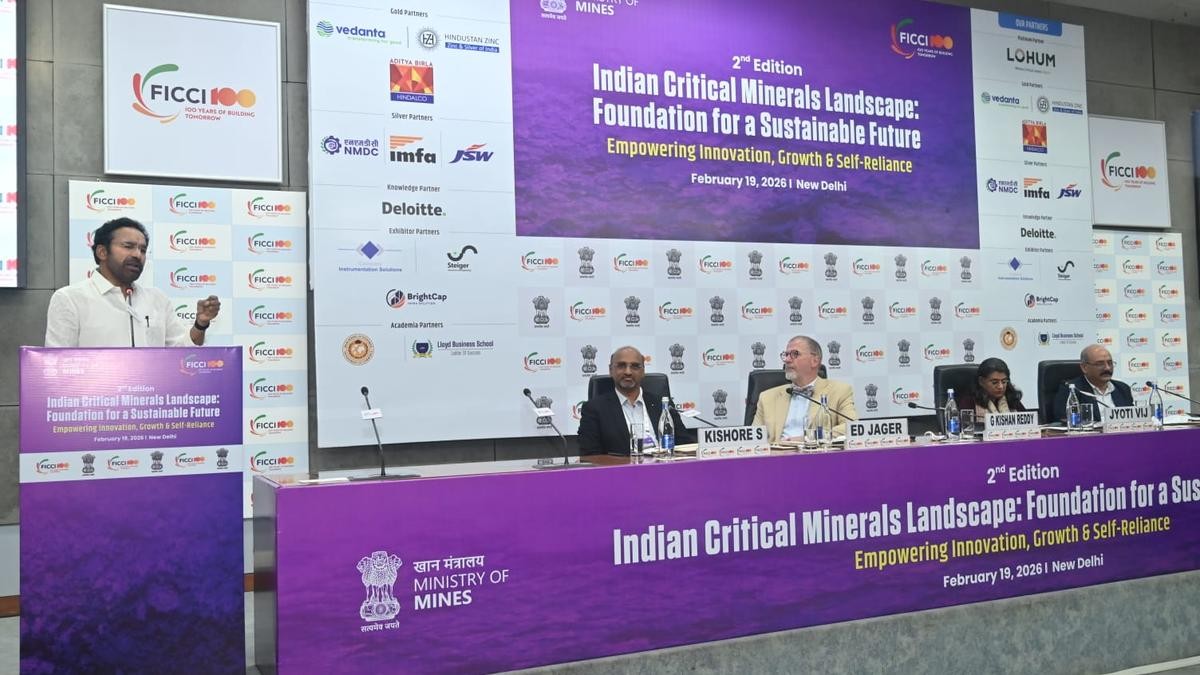



India to host the AI Impact Summit in 2026, to revolutionize global discussions on AI by ensuring its benefits extend to all. The summit will include accountability through pledges and report cards, a Global AI Safety Collaborative, a voluntary code of conduct, and an inclusive agenda. For UPSC GS III

Copyright infringement not intended
Picture Courtesy: THE HINDU
India will host the AI Impact Summit in 2026 to revolutionize global discussions on AI by ensuring its benefits extend to all.
Accountability through Pledges and Report Cards => India's digital public goods like Aadhaar, which provides secure identity to over a billion people, and the Unified Payments Interface (UPI), which enables instant money transfers, prove that technology can genuinely serve everyone.
Bringing the Global South to the Front Row => India, as a leading voice for the Global South advocating for the widest possible participation.
Global AI Safety Collaborative => Since the Bletchley Summit in 2023, experts have emphasized "red teaming" (stress-testing AI) and robust safety checks. While many national AI safety institutes have emerged, a shared global checklist is missing.
A Voluntary Code of Conduct => World is currently divided on AI regulation: the U.S. has heavy oversight, Europe has its strict AI Act, and China prefers state control.
Inclusive Agenda => 2026 summit's agenda must be broad, inclusive, and firmly focused on global good, promoting unity over division.
NITI Aayog's National Strategy for AI (NSAI) => Released in 2018, identified five key sectors for AI intervention: healthcare, agriculture, education, smart cities & infrastructure, and smart mobility & transportation.
NITI Aayog released "Principles for Responsible AI" in 2021 => Outlines broad ethical principles for designing, developing, and deploying AI systems, drawing on global best practices but adapted to the Indian context.
IndiaAI Mission (2024) => Launched by the Ministry of Electronics and Information Technology (MeitY), it plans a seven-pillar policy focusing on:
|
European Union (EU) |
United States (US) |
China |
|
|
Approach |
Risk-based & Comprehensive Regulation: Focuses on human rights and safety. |
Sector-Specific & Voluntary: Emphasizes innovation, light-touch regulation, and leveraging existing laws. |
State Control & Innovation: Focuses on national security, social stability, and becoming a global AI leader. |
|
Key Legislation |
AI Act (Passed 2024): World's first comprehensive AI law. Categorizes AI systems by risk (unacceptable, high, limited, minimal) and applies different rules. |
Executive Order on Safe, Secure, and Trustworthy AI (2023): Mandates AI safety standards, promotes competition, and protects privacy. |
Deep Synthesis (Deepfake) Regulation (2023): Regulates AI-generated content. Broader laws on data security and personal information. |
|
Focus |
Protecting citizens from harmful AI, ensuring transparency, accuracy, and human oversight. |
Promoting innovation, economic growth, maintaining a competitive edge in AI development, while addressing risks. |
Harnessing AI for economic development, social governance, and national security. |
India wants to reframe the entire global AI debate. It believes AI's future is about humans using AI to achieve amazing things, not about robots replacing humans. By focusing on inclusivity, and ethical development, India seeks to guide AI towards a future that benefits all of humanity.
Must Read Articles:
Paris AI Summit co-chaired by Modi
Source: THE HINDU
|
PRACTICE QUESTION Q. Discuss how India's 'AI for All' strategy aims to ensure inclusive growth and address societal challenges. 150 words |
India's democratic values, digital public goods, and commitment to inclusivity give it a unique credibility to bridge global divides in AI governance.
It is a proposed fund to provide resources like cloud credits and fellowships to empower AI talent in the Global South.
India suggests a voluntary yet specific "frontier AI code of conduct" that balances fears of heavy regulation with the need for accountability.







© 2026 iasgyan. All right reserved